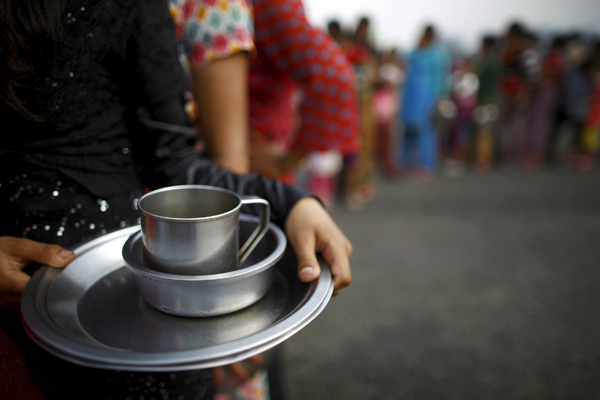UNICEF to help accelerate essential nutrition services
KATHMANDU: The UNICEF is going to organise a weeklong campaign to support the Ministry of Health and Population to accelerate delivery of essential nutrition services to women and children in the earthquake-affected areas.
Issuing a press statement today, UNICEF said it has planned to deliver essential nutrition services to over 500,000 women and children in the most affected areas of 14 districts.
“The earthquakes destroyed homes and stored food grains, killed livestock, exposed people living in shelters to the hard weather conditions during the monsoon, damaged roads and water sources, as well as overwhelmed the understaffed health care facilities,” said Tomoo Hozumi, UNICEF Representative to Nepal in the statement. “All of them have taken a toll on the delivery of health and nutrition services and also exposed children to additional health and nutritional risks.”
Over 10,000 Female Community Health Volunteers, 4,000 Health Workers and others have been rolling out the activities.
“Transporting essential supplies to the communities living in the remote areas of these districts is posing a great challenge with the setting in of the monsoon rains,” said Hozumi in the statement. “In Nepal, even before the emergency, close to four out of 10 children were in a state of malnutrition. Now with these damage, losses and challenges, children aged 6 to 59 months in these earthquake-affected districts are at a heightened risk of malnutrition.”
The volunteers assigned will be supporting mothers to breastfeed to ensure that they grow healthy and do not fall sick with diarrhoea and pneumonia. They will also be supporting families to feed locally available complementary food to 126,000 children aged 6 to 24 months to enable them to develop to their full potential and not fall victim to malnutrition.
The statement further said that UNICEF has planned to distribute vitamin A, iron, folic acid and other supplement to pregnant women.
“It is especially important during an emergency, where children are more vulnerable to diseases and conditions that can have a long-lasting negative impact on their lives,” said Hozumi, adding, “We need to do everything we can to prevent the surge of malnutrition among children during the monsoon season, which even in the best of times is very challenging in terms of diseases and malnutrition of children.”
Activities include
- Supporting mothers to breastfeed 168,000 children aged 0 to 24 months to ensure that they grow healthy and do not fall sick with diarrhoea and pneumonia
- Supporting families to feed locally available complementary food to 126,000 children aged 6 to 24 months to enable them to develop to their full potential and not fall victim to malnutrition
- Conducting community-based screening by using mid-upper arm circumference tapes to quickly measure and identify children with severe acute malnutrition
- Providing therapeutic foods — like nutrient-rich peanut paste — and care to 16,500 children with severe acute malnutrition to reduce the risk of their deaths and bring them back to healthy growth and development
- Distributing vitamin A, iron and folic acid, and other micronutrient supplements to 362,000 children under five years of age as well as 185,000 pregnant and breastfeeding women as necessary to strengthen the children’s immune system






